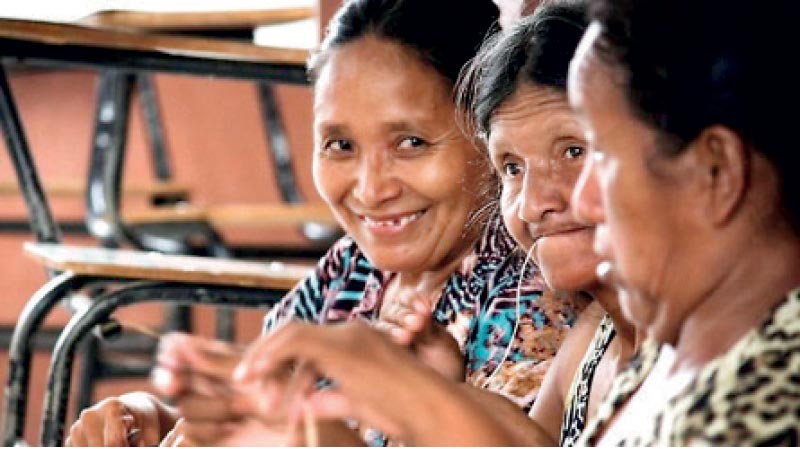Friday Feb 20, 2026
Friday Feb 20, 2026
Thursday, 2 October 2025 14:28 - - {{hitsCtrl.values.hits}}

World Elders’ Day is a time to recognize the wisdom, sacrifices and lifelong contributions of senior citizens. As life expectancy increases globally, societies must ensure that older people are not marginalized but supported to live with dignity, independence and purpose. Ageing is not a burden—it is a natural stage of life that deserves respect, planning and care. Building an inclusive society for elders involves addressing healthcare needs, social inclusion, financial security and emotional wellbeing.
Healthcare is one of the most critical areas affecting elders. Age-related illnesses such as diabetes, heart disease, arthritis and memory disorders require consistent medical attention. Unfortunately, many senior citizens face limited access to quality healthcare due to high costs, long travel distances or lack of support systems. Creating affordable and accessible healthcare facilities, mobile clinics and home-care services can significantly improve quality of life. Training caregivers and expanding geriatric healthcare programmes can also strengthen support for ageing populations.
Social inclusion is another essential element of elder wellbeing. Many senior citizens feel isolated after children migrate, friends pass away or retirement reduces daily social interactions. Loneliness can lead to depression, cognitive decline and other health issues. Community centres, religious institutions and social organizations can create opportunities for elders to interact, share experiences and participate in recreational or cultural activities. Intergenerational programmes that connect youth with older adults foster mutual understanding and combat age-based stereotypes.
Economic security is vital for elders to live independently. Many retirees rely on pensions, savings or their children for daily expenses. However, inadequate financial planning and rising living costs can place them in vulnerable positions. Governments and financial institutions should promote pension schemes, senior-friendly banking services and financial literacy programmes. Encouraging businesses to offer flexible part-time roles for capable retirees can also help them remain productive and maintain a sense of purpose.
Support for caregivers is equally important. Families often struggle to balance work, finances and elder care responsibilities. Providing caregiver training, respite services and community support networks can ease the burden and improve the standard of care. Policies that protect the rights of elders against neglect, abuse or exploitation are crucial to maintaining their dignity.
Technology can also be used positively to enhance the lives of older people. Telemedicine, emergency alert devices and digital communication platforms can help them stay connected and safe. However, many seniors may feel intimidated by technology. Offering training programmes and user-friendly tools ensures they are not left behind in the digital world.
Respect and compassion are the foundation of an inclusive society. Elders are reservoirs of wisdom, culture and life lessons. Family members, especially younger generations, should spend time listening to their stories, seeking their guidance and appreciating their experiences. Media and public campaigns can promote positive images of ageing and encourage communities to honour their elders.
On this World Elders’ Day, we are reminded that ageing with dignity is not a privilege but a right. A society that values its elders is one that preserves its history and strengthens its future. By investing in healthcare, social inclusion, financial stability and emotional support, we can create a world where senior citizens are not merely cared for, but celebrated. Ageing should be accompanied by respect, independence and happiness—and it is our collective duty to ensure that every elder has the chance to live with purpose and pride.